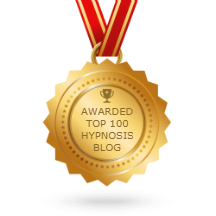By Hervé Boisdé
You may not realize it, but most of your negative behavior is influenced by your "inner child." All behavior is influenced by the subconscious mind, because that's where emotions reside, and emotions drive behavior (more than the logical conscious mind). But when we trip ourselves up as adults, it's usually because of a block that's been living in the subconscious for a long time. From very early childhood up until about age 8, kids are sort of living in a state of permanent hypnosis. This is because the critical factor, the gatekeeper that separates the conscious mind and the subconscious mind, has not yet been formed. This is also why kids are so creative and imaginative, love to play make-believe and can absorb information so quickly. Their brains are like sponges and all that information just goes directly into the fertile depths of their mind. This has huge benefits for kids' development, but it also makes children more vulnerable to negative ideas. The subconscious mind cannot form it's own ideas, but it is very good at storing them....for a long time.
As an example, let's say a small child of 6 years old is in Second Grade at school and eagerly raises her hand to answer a question in class. The teacher asks the little girl to go to the front of the class and spell the word Cat on the chalkboard (let's assume this was back in the days when classrooms still had chalk and blackboards). The child confidently approaches the board, picks up the chalk and spells the 3 letter word....but instead writes K...A...T. The classroom immediately erupts into laughter. The little girl hears someone in the back of the room say the word "dummy!" so she begins to cry and returns to her seat in shame. In this somewhat dramatic example, there has been a clear traumatic event for the child. But even if she had not been crying she may have internalized an idea such as "If I do things publicly, I will get embarrassed" or something similar like "People think I'm stupid". Fast-forward several decades and the now adult person might have a fear of speaking up in work meetings, or going back to school to get a higher degree.
Now that's a pretty straightforward example of an adult fear provoked by a childhood experience. But sometimes it's not so straightforward. Because chances are that an adult would remember that event when they spelled Cat using the letters "k-a-t" and try to look back on that episode with compassion for the child version of themselves by saying "I was just a kid...we all make mistakes" which would help to heal any lingering fears stemming from being embarrassed in school settings etc.
But what if the little girl in that example is now a teenager, but doesn't have fears related to being embarrassed in school or in front of groups of people? Maybe she is instead having difficulty driving a car confidently when someone is in the passenger seat. When she is driving alone she is confident and alert, but as soon as someone else is in the car she become distracted and nervous, and drives badly. Maybe she beats herself up a little by repeating stereotypes about women drivers. And then maybe she begins to limit herself in other ways. So later on as an older adult woman she has decided to take the "backseat" to others at work, in relationships, and in other situations having nothing to do with driving.
Perhaps that woman works hard to get a promotion and becomes manager of a department at her place of work, but 6 months later, she is struggling to do the things required of the position and gets demoted back to her previous role. She's returned to the "backseat" where she feels more comfortable. Consciously she may really want to have the managerial role, but underneath she is acting on the emotions still put into place by her inner child. Subconsciously she fears the attention. And because there isn't a straightforward connection between misspelling the word cat back in second grade and having more of a "driver-seat" role at work, it's more difficult to become aware of the event or events that created the mental block.
Hypnotherapists can uncover those initial sensitizing events or ISEs with regression therapy to help heal those past minor (or not so minor) traumas that create blocks and self-sabotaging behavior in adulthood. Sometimes there are are 2 or more "minor" events that create enough emotional stress to create an issue such as fear of flying where the subconscious mind is really saying "I fear a loss of control". The fear of flying might instead be a metaphor for the gradual loss of control in that person's life and it manifests itself only in situations where it's impossible to be in control (unless you are the pilot of the plane).
If you find yourself taking two steps back for every step forward in a certain area of your life, ask yourself "Am I perhaps sabotaging myself?" Maybe then you can help yourself to find the cause of your behavior and heal the inner child that's still just trying to avoid pain in the only way he or she knows how.

